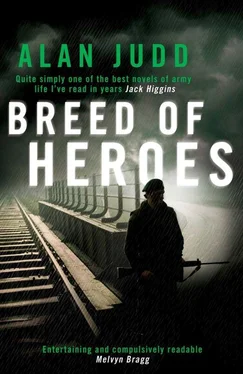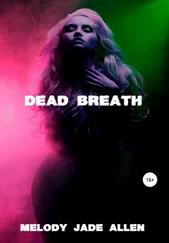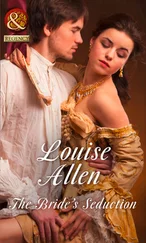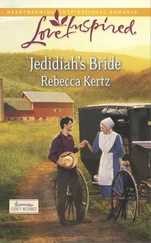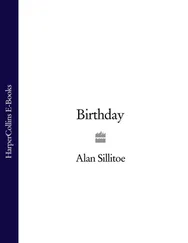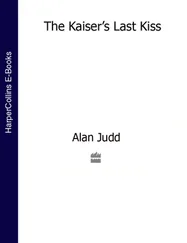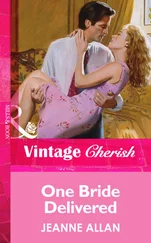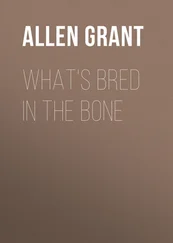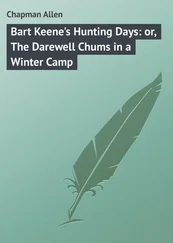With regard to the watchkeeping periods, Charles found it strangely relaxing to know that whatever happened he would be keeping his watch at certain hours, riot or revolution notwithstanding. When it was quiet there was time for reading and letter-writing, and during the long watches of the night he would sometimes have conversations with the radio operator, which would later seem bizarre and implausible. Times such as these, when both fell silent, were the nearest that anyone ever got to privacy. It was the watchkeeper’s job to respond to anything that came up on either of the radio nets — the battalion and the brigade. Every message in or out had to be logged, and it was Charles’s fear that he would have to deal simultaneously with one of Brigade’s abstruse queries and some emergency, real or imagined, within the battalion area. His voice procedure had never been good, though it was usually adequate. Brigade were particularly hot on offenders, although the greatest offender was the Brigade commander himself. His voice procedure was a disconcerting mixture of ordinary conversation and incomprehensible telegraphese, which he would suddenly adopt for a few sentences when he remembered that he was on the air. He was the only man who ever came up without giving a call-sign, but this itself, combined with his drawling tones and extraordinary phraseology, made call-signs redundant. He was immediately recognisable to every listener. It was more of a problem to know when he had finished: he would sometimes say ‘Out’ crisply, sometimes not at all and at others would cut back in on other conversations.
Charles’s time of greatest privacy and pleasure was after the 2200–0600 watch, which occurred once a week. After his relief had arrived he would go upstairs on to the flat roof of the police station. There was a sentry up there in a sangar but he could wander about freely without going near him. He did not worry about snipers since the IRA were not at their most active early in the morning. There was a view over a large part of West Belfast leading up to the Black Mountain, the only visible bit of greenery. The cold was enlivening and bracing and the air clear. Above all, though, the city looked clean and almost innocent in its freshness. Later, the industrial haze would settle and turn the sun, if it appeared, into something the colour of rancid butter and the rain into a dull, dirty smear on the windows. But at six in the morning the homely little rooftops and the quiet little streets looked pathetically human. It was possible then to feel some hope for the place. Then the traffic would begin and the people would appear, bringing with them the noise, dirt, slovenliness and ordinary harshness of everyday life. Children with hard, old faces would start their paper rounds, and Charles would go back down to breakfast.
Every night the CO visited the companies. His trip round usually started at about ten, but could be earlier if he were bored. It would last from two to six hours. Charles usually accompanied him in case, as the CO put it, he had to arrest any rascally journalists on the way. For Charles it was a good opportunity to get out of battalion HQ. Unfortunately, the RSM was of the same opinion, and he also regarded himself as being in charge of the CO’s escort party. Frequently there was a silent and private feud between him and Charles to see who should sit in the front of the escort vehicle, the RSM regarding it as being beneath his dignity to give place to a mere second lieutenant, while Charles was happy to give up the seat but not to have it taken from him.
It was well known that the CO was looking for trouble when he went out at night, and he would even poach on a neighbouring battalion’s area if there was no life in his own. In the worst parts of his own area he would often leave the vehicles under guard and mount an extempore foot patrol under his own command, normally the job of a corporal. He would stop and search people who struck him as suspicious — nearly everyone did so strike him — and would mount sudden road blocks in the hope of catching stolen cars. Since most cars used in shootings and bombings were stolen, the search for such vehicles formed an important part of military life in Belfast, and everyone soon acquired something of the mentality of a traffic warden. There was an intense programme of VCPs and thousands of vehicles were stopped every week, occasionally with some result. Brigade were always worried about Ford Cortinas, which were said to be easy to steal and, certainly, were frequently used by terrorists. A representative for Ford, interviewed on the radio, denied that they were easier to steal than other comparable cars and suggested that their popularity was due to their reliability and speed. On some nights the CO would stop every Ford Cortina he saw. For about a fortnight Brigade issued numerous reports about blue Cortinas and the adjutant said that one of the RUC men had told him that if all the reports were true, every blue Cortina in Belfast had been stolen twice.
Anthony Hamilton-Smith sometimes did the rounds of the companies instead of the CO, with noticeably less drama. No one in battalion HQ knew how he passed his time, and no one thought it appropriate to ask. He was always fresh and immaculate, polite and charming whatever was happening. His persistent anachronisms earned him some good-natured ridicule, yet tinged with admiration. It was an army which admired bluff, which recognised its importance and which could forgive most sins provided they were done with a certain style. There were, of course, those — one or two of the more ambitious company commanders — whose sense of military virtue was outraged by Anthony’s continuing lament over the demise of the horse in modern warfare. They regarded him as an ineffectual dilettante, but his own unfailing politeness and good humour prevented them from demonstrating their disapproval. There was, indeed, something in his playfully old-fashioned manner that indicated a mind at rest, but not asleep. The CO seemed only intermittently aware that he had a second-in-command and showed no curiosity as to what his second-in-command did with his time. His style of leadership rendered subordinate commanders unnecessary, and an amiable, unprotesting 2IC fitted perfectly. Anthony’s responsibility for community relations remained almost entirely theoretical. It would have been completely theoretical had he not had to chair a weekly meeting of the RUC community relations representative and the company representatives. Charles was made responsible for the minutes. The purpose of the meeting was to discuss and, where necessary, allocate funds for community relations projects. Such few projects as there were had been inherited from the previous unit, though B company’s representative, a rather keen captain, wanted to build an adventure playground on some wasteland. The CO, though, was known not to favour community relations, and Anthony was not one to exert himself unnecessarily. The result was that the previous unit’s projects dwindled and the adventure playground, though paid lip-service to by all, was talked about in such a way that everyone, except the keen captain, was able to feel reassured that it would still be under discussion when the battalion left Belfast. At best, community relations secured the friendship of the friendly, while the unfriendly remained unchanged. Anthony introduced each meeting, was not always able to stay to the end, but occasionally handed round some cigars.
One evening came the first serious riot in which the battalion was involved. There had been no indication of trouble at the five o’clock ‘prayers’ — indeed, Nigel Beale had forecast a quiet period during which the IRA were ‘regrouping’ — and there was no apparent reason for it, though it was later said to have been a test of the battalion’s reaction. ‘They wanted to know whether they were dealing with soft nuts or hard nuts,’ the CO said afterwards. ‘Well, now they know.’
Читать дальше
